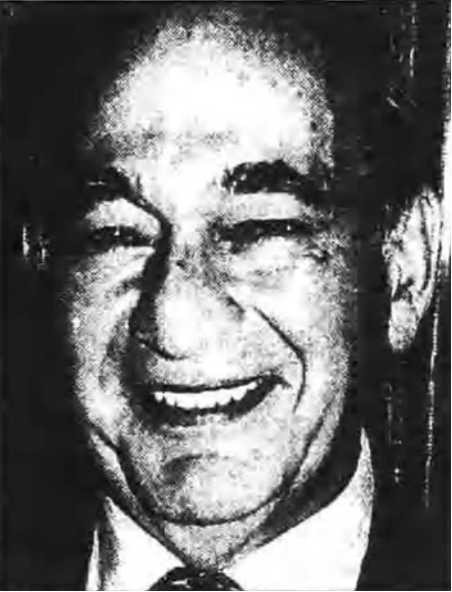Iranian entrepreneur and his wife establish memorials for their sons.
Mammadi Soudavar Memorial Fellowship Fund
Mammadi Mohammad Soudavar (1945-1981)
Founded in 1982 by Fereidoun and Massoumeh Shamsi Soudavar in memory of their son, Mammadi, who died of cancer in 1981 at age 36.
Alireza Soudavar Fund
Alireza Soudavar (1945-1977)
Founded in 1982 by Fereidoun and Massoumeh Shamsi Soudavar in memory of their son, Alireza, who died in 1977 at age 32.
Fereidoun Soudavar was one of Iran’s leading entrepreneurs and wanted to ensure the continuing study and appreciation of Iran’s rich cultural heritage. He also wanted to memorialize his two sons, who died in their 30s.
Fereidoun was born May 7, 1908, into a family of tea merchants in the rural village of Eshqabad in northern Iran, near the border with Turkmenistan. After the Russian Revolution in 1917, his family settled in Tehran. Fereidoun and his older brothers, Samad and Ahmad, left home to study in Europe, and when they returned, they founded the Merrikh Company, which represented Mercedes Benz in Iran.
The Soudavar brothers’ company, renamed the Khavar Industrial Group, grew into one of Iran’s largest industries and was among the first admitted to the Tehran Stock Exchange in 1968. Merrikh was one division, along with textile manufacturing and a truck assembly line.
Massoumeh Shamsi Amir-Alai and Fereidoun Soudavar were married in Tehran in 1939. Their sons, Alireza and Mammadi, were born in 1945.
Alireza studied in Germany and Switzerland, then enrolled in St. Gallen College of Economics. His stay in Switzerland allowed him to indulge his fondness for horses, and when he returned to Tehran, his parents gave him their blessing to establish a riding school, the Dasht-Behesht Riding Club. Impatient with the slow pace of development in Iran, he decided to move his base to Ireland in 1976, where he established a sizeable and successful stud farm.
After visiting his parents in November 1977, Alireza was en route back to Northern Ireland when he was found dead in a hotel room in South Kensington, London. He was 32. Although Alireza had a history of heart disease, the Westminster coroner said he “could find no apparent reason” for his death.
Mammadi graduated from Dwight School in Manhattan and attended New York University. In February 1971, he married Jane Andrea Seskis at the 21 Club. Her father, John Y. Seskis, was a member of the New York Stock Exchange.
Mammadi was treated for cancer at Memorial Sloan Kettering in Manhattan. He died in 1981 at age 36.
In 1978, shortly before the Iranian Revolution, which ended in the overthrow of Mohammed Reza Pahlavi, the last Shah of Iran, Fereidoun and Massoumeh Soudavar fled their homeland and chose voluntary exile in Britain. Their company and all major private Iranian industries were placed in the hands of the new Islamic government.
After his exile and his sons’ deaths, Fereidoun Soudavar devoted much of his time and energy to philanthropy and establishing memorials in their names. He endowed Persian Studies courses at Oxford, Cambridge, and Brunel Universities in Britain. At Princeton University, he established scholarships for Iranian and Third World students as a tribute to his sons. He also supported the study and presentation of Persian Art and Culture at the Brooklyn Museum of Art.
In the 1980s, the Soudavars set up two funds in The New York Community Trust in memory of Alireza and Mammadi. The funds have supported cancer education and research and provided fellowships for qualified physicians from around the world to study in leading U.S. facilities and take that knowledge back to their countries.
Fereidoun Soudavar died in London on April 4, 1997, at age 88. In his appreciation, Fereidoun’s friend and a former lecturer in Persian language and literature at Cambridge, Peter Avery, wrote: “Fereidoun Soudavar was an admirable example of Iranian dignity, courtesy and beneficence; and, with his shrewd wit, excellent company. He introduced to his associates something of the light of those Iranian qualities that, throughout a long history, have survived the most grave adversaries.”
Masoumeh Shamsi Soudavar died July 20, 2000. She was 86.
